

Courtesy of YouTube /Netflix
Is your private information on Facebook, Twitter, and Instagram safe? Why do we see ad pop ups on Facebook related to things we search on Google? Are Siri, Alexa, Cortana, and Google Assistant all designed to spy on us? Is our data being collected without our knowledge and transmitted back to tech bosses sitting thousands of miles away? Have we tangled ourselves in a dystopian web of data without even realizing how our private information can be stolen and weaponized? Netflix's latest documentary "The Great Hack," directed by Oscar-nominated Karim Amer and Jehane Noujaim, tries to answer these questions as it dives deep into the infamous 2018 data leak scandal involving American social media giant Facebook and now-defunct British political consulting firm Cambridge Analytica.
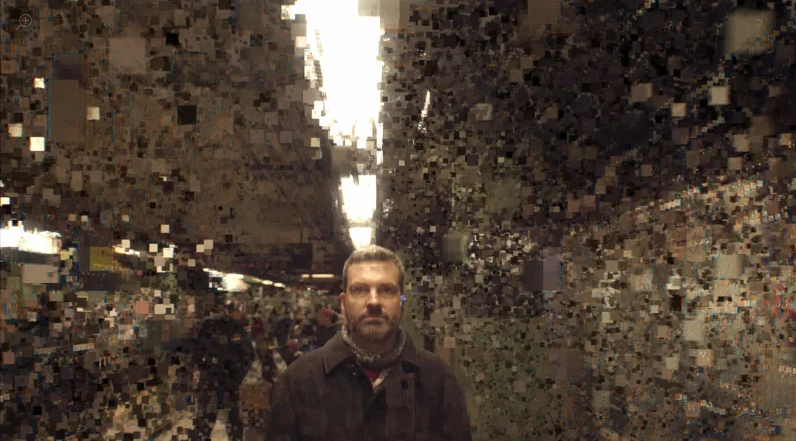
A still from "The Great Hack" featuring Professor David Carroll. /Courtesy of YouTube/Netflix
Described by many as the "best horror movie" of the year, the unnerving documentary makes an audacious attempt to slap viewers in the face and awaken them to the dark side of the social media and data exploitation industries. The film documents the captivating personal struggles and journeys of three real-life characters. David Carroll, an American professor at the Parsons School of Design, who in 2017 requested his data profile from Cambridge Analytica, exercising a right enshrined in Britain's Data Protection Act of 1998. However, in June 2018, Cambridge Analytica refused to release his personal data and took on criminal charges. The company pleaded guilty and accepted a 15,000-pound fine (around 18,000 U.S. dollars).
Carole Cadwalladr, an award-winning journalist for the Observer in London, also investigated the political consultancy firm, leading to multiple data privacy-related probes in the U.S. and the UK. But the narrative majorly comes down to one person: Brittany Kaiser, a former business-development director of Cambridge Analytica and an ostensible whistleblower who turned against her employer. It would be unfair to not mention here that Kaiser started her political career as a volunteer for former U.S. President Barack Obama.
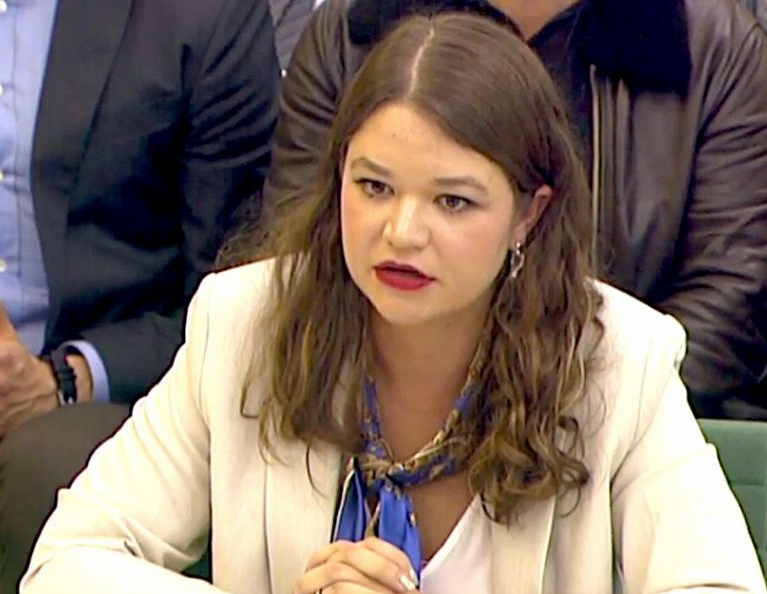
Brittany Kaiser, a former business-development director of Cambridge Analytica, testifies before UK MPs, April 2019. /Courtesy of YouTube/Netflix
In the film, Kaiser - who claims to have worked on Leave EU campaign in her capacity as an executive at Cambridge Analytica - explains how every single like, comment, status update, and personality quiz was harvested from Facebook by Cambridge Analytica to learn about potential voters' behavior and later used to target them with advertisements and political campaigning. The film describes this as "personality hacking." Further, Kaiser claims that the propaganda machine was first tested in countries like Kenya, Ghana, Trinidad and Tobago before it was unleashed during 2016 for the U.S. presidential election and Brexit referendum in the UK.
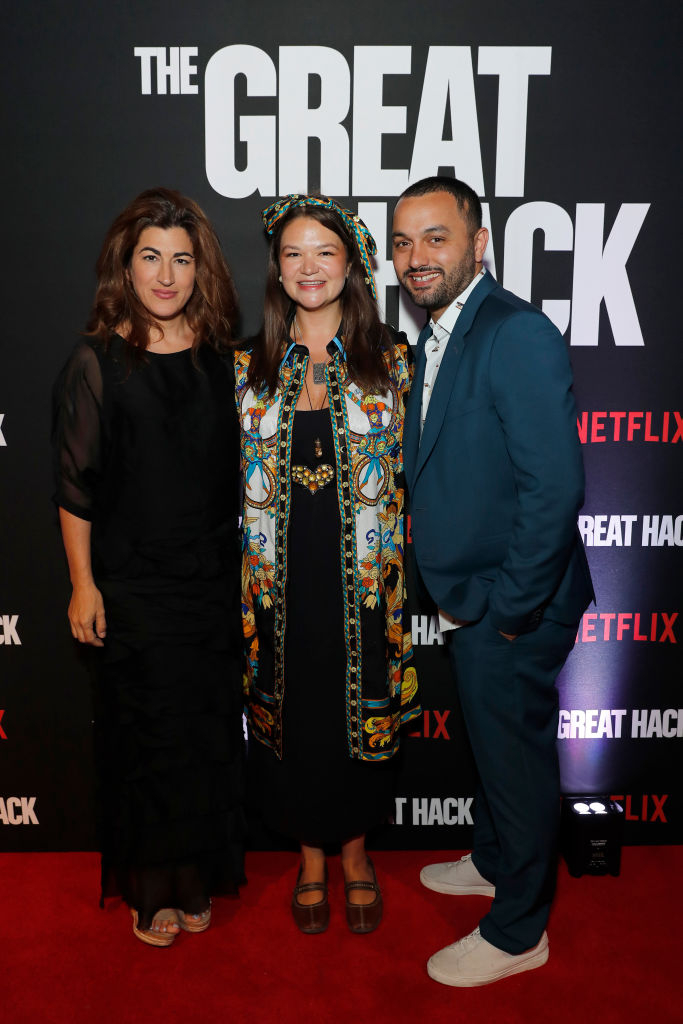
(L-R) Jehane Noujaim, Brittany Kaiser and Karim Amer attend "The Great Hack" special screening and reception at Science Museum in London, July 16, 2019. /VCG Photo
The most intriguing part of the film is when Kaiser and Carroll are brought together to watch Mark Zuckerberg's testimony of April 2019 before the U.S. Congress, and when Zuckerberg blames Cambridge Analytica for all the problems she rolls her eyes and says: "Yeah, blame it on me, go for it."
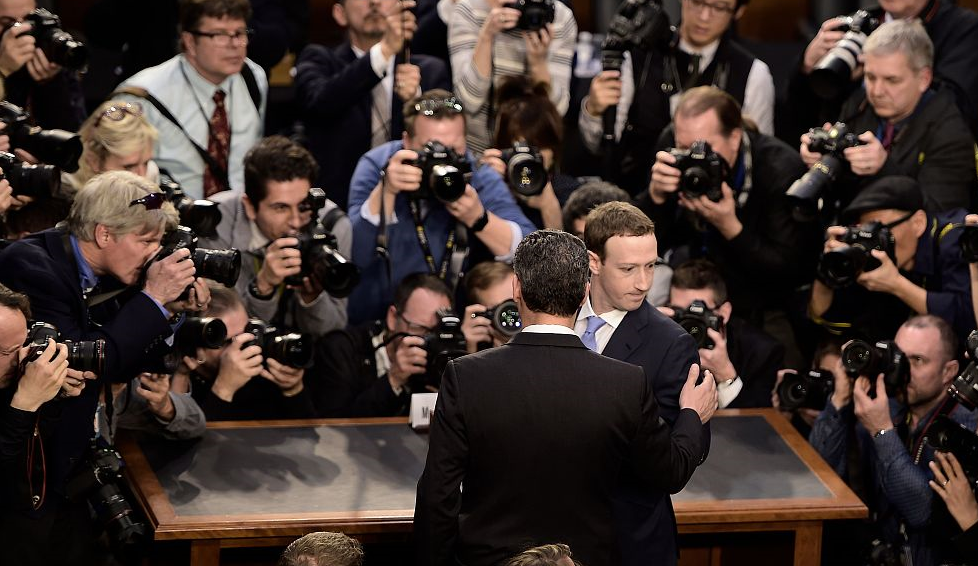
Facebook CEO Mark Zuckerberg arrives to testify before a joint hearing of the U.S. Senate Commerce, Science and Transportation Committee and Senate Judiciary Committee in Washington, April 10, 2018. /VCG Photo
Coincidentally, the movie was released on the same day the U.S. Federal Trade Commission asked Facebook to pay a record-breaking five-billion-U.S.-dollar fine for mishandling users' data. During the investigation, Facebook made damaging admissions about its privacy practices, such as the unintentional exposure of data related to its 87 million users to Cambridge Analytica. However, it is worth noting that the fine is more of a settlement than a punishment which means it is not likely to affect Facebook's desire to compile information about its users and exploit the data to build a massive advertising business.
However, no real perpetrator, other than Facebook, emerges in the movie. People like Nigel Farage - a prominent political figure in the UK, first with UKIP and now affiliated with Britain's Brexit Party - are shown here and there. Others like Arron Banks, British businessman and a donor of Leave EU campaign, and Steve Bannon, Trump's 2016 election campaign manager, also pop up in a few scenes.

U.S. President Donald Trump with Steve Bannon in the White House, Washington, January 22, 2017. /VCG Photo
The two-hour-long film makes some astonishing yet unsubstantiatal claims, like the revelation that Steve Bannon as one of the founders of Cambridge Analytica. It also claims that "web searches, credit card swipes, likes, comments, status updates are all collected into a trillion-dollar information industry," adding that companies like "Facebook, Google have become so powerful because their vast data is now more valuable than oil," however no such figures and measures actually exist.
Believe it or not! It does come as a stunning reminder that the internet will not remain a place where we simply buy things and browse in a passive way, but will instead become a place where our personality, behavior and information are harvested and sold for political and business gains.
After viewing the film, you might want to delete your Facebook profile for good!
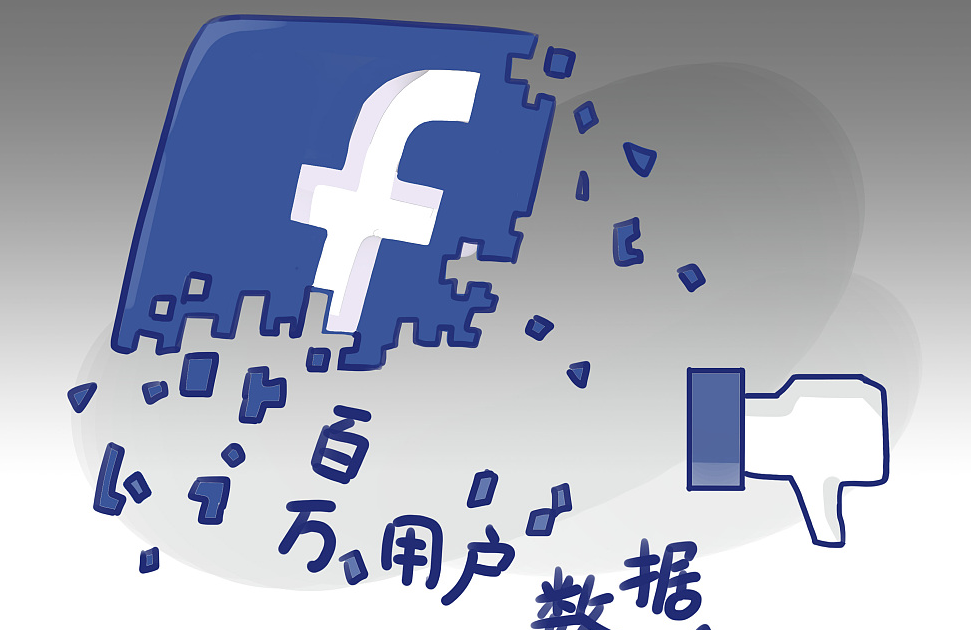
Facebook made damaging admissions about its privacy practices, such as unintentional exposure of data related to its 87 million users to Cambridge Analytica. /VCG Photo
(Cover: A still from "The Great Hack" /Courtesy of YouTube/Netflix

Copyright © 2018 CGTN. Beijing ICP prepared NO.16065310-3
Copyright © 2018 CGTN. Beijing ICP prepared NO.16065310-3